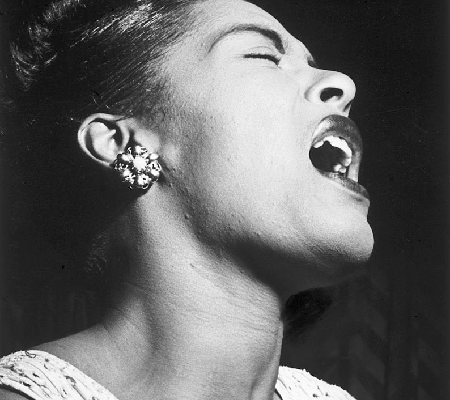Strange Fruit

The spotlight burned hot, the crowd hushed, and Billie Holiday stood at the microphone, her face solemn. The first mournful notes played, and she sang:
“Southern trees bear a strange fruit…”
The room tensed. This was no ordinary song—it was an act of defiance. Strange Fruit, a haunting protest against the lynching of Black Americans, was unlike anything jazz clubs had ever heard. The song, written by Abel Meeropol, a Jewish schoolteacher horrified by racial violence, found its voice in Holiday.
Powerful men told her to stop singing it. The government, the police, and even club owners warned her—this song was too dangerous, too incendiary. The FBI hounded her, her performances were sabotaged, and she was blacklisted.
But Billie refused. She sang it anyway, night after night, standing under a single dim light, eyes closed, delivering each word like a funeral prayer. The audience sat frozen, unable to applaud when it ended.
Her no came at a cost—her career suffered, her battles with addiction worsened—but she never backed down. Today, Strange Fruit is remembered as one of the most powerful protest songs ever recorded. Billie Holiday made sure the world couldn’t look away.
From childhood, we’re taught that yes is a magic word. Say yes to new experiences. Say yes to opportunities. Say yes to being helpful, polite, and accommodating. But what about no?
No is often treated like a dirty word—negative, rude, defiant. But history, psychology, and personal experience all tell a different story. Saying no isn’t just about rejection; it’s about power. It’s about boundaries, self-respect, and sometimes, rewriting the script entirely.
Some of the most defining moments in history started with a simple no. Rosa Parks said no to giving up her seat on a segregated bus, sparking the Civil Rights Movement, Joan of Arc said no to traditional gender roles and led an army, Malala Yousafzai said no to the Taliban’s attempt to silence her, becoming a global advocate for girls’ education, Serena Williams had said no to critics telling her to tone down her passion.
Many of us struggle with saying no because we don’t want to disappoint people. We fear rejection, conflict, or being seen as difficult. But no isn’t selfish—it’s necessary. Saying no is how we set boundaries. It’s how we protect our time, energy, and mental health.
You don’t have to lead a revolution to use the power of no. It’s just as valuable in everyday life. Saying no to a toxic job preserves your well-being. Saying no to an overpacked schedule gives you space to breathe. Saying no to expectations that don’t fit you allows you to define your own path.
Here are some more refuseniks who rejected the role given to them. Born into slavery, Sojourner Truth could have lived out her days under the system that shackled her. Instead, she walked away—literally—escaping to freedom and becoming one of the fiercest voices against slavery and for women’s rights. Her famous speech, Ain’t I a Woman? remains a historical mic-drop moment.
In Victorian Britain, women were expected to be seen, not heard, preferably while embroidering something dainty. Emmeline Pankhurst preferred smashing windows and chaining herself to railings for the right to vote. She led the militant suffragette movement, endured imprisonment, hunger strikes, and force-feedings—yet never backed down. Now, British women can vote, and the world has Emmeline’s fiery “no” to thank.
Frida Kahlo refused to be defined—by gender norms, her turbulent marriage to Diego Rivera, or even physical pain. When life handed her a bus accident and chronic suffering, she painted masterpieces instead. She embraced her unconventional beauty, rocked her unibrow unapologetically, and showed the world that art doesn’t have to be pretty—it just has to be true.
In my forthcoming book Conversations with Remarkable Women, you meet Dr James Barry, who refused to take no for an answer when she said she wanted to be a doctor and climbed to the top of the British army medical tree by dressing up as a man. You can also encounter Heddy Lamarr, once called the most beautiful woman in Hollywood, who refused to accept being a film star was enough—she invented a technology that makes mobile phones possible and many other digital devices that we take for granted.
And don’t miss my encounter with Rachel Carson, who almost single-handedly started the environmental movement by refusing to back off and back down in her branding of chemical companies as nature and people killers. She published Silent Spring, which sold millions of copies.
Conversations with Remarkable Women is available from Amazon and andrewsbooks.site
See also: Strange Fruit: Billie Holiday and the Biography of a Song, by David Margolick,The Ecco Press, 2001
